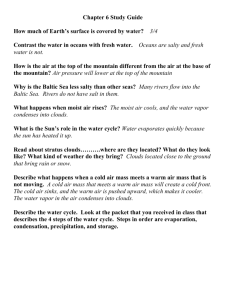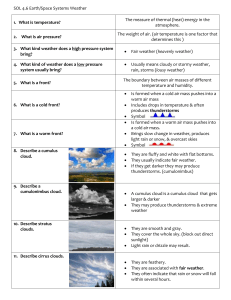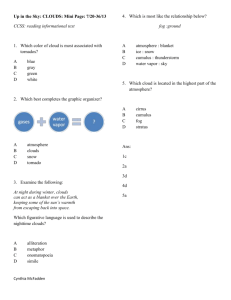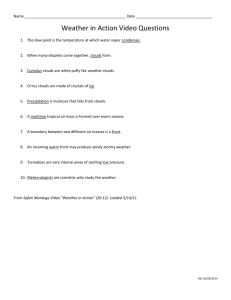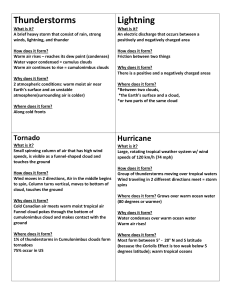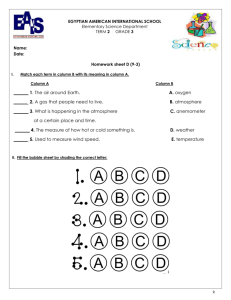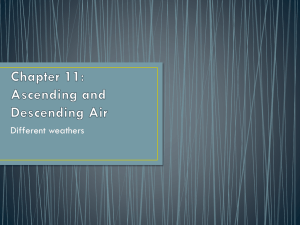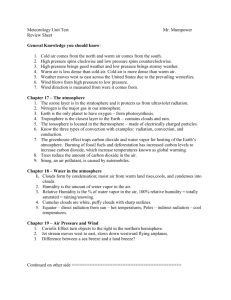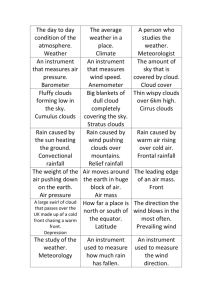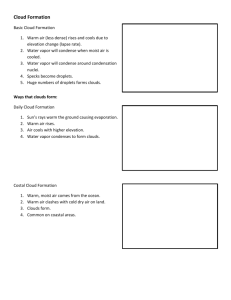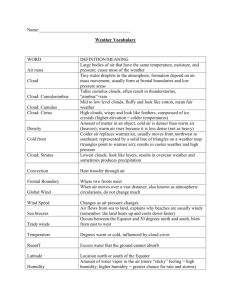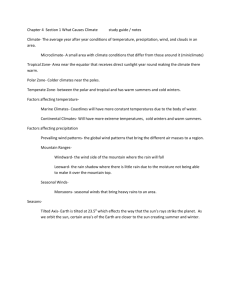Weather and Climate Study Guide - Chapter 7
advertisement
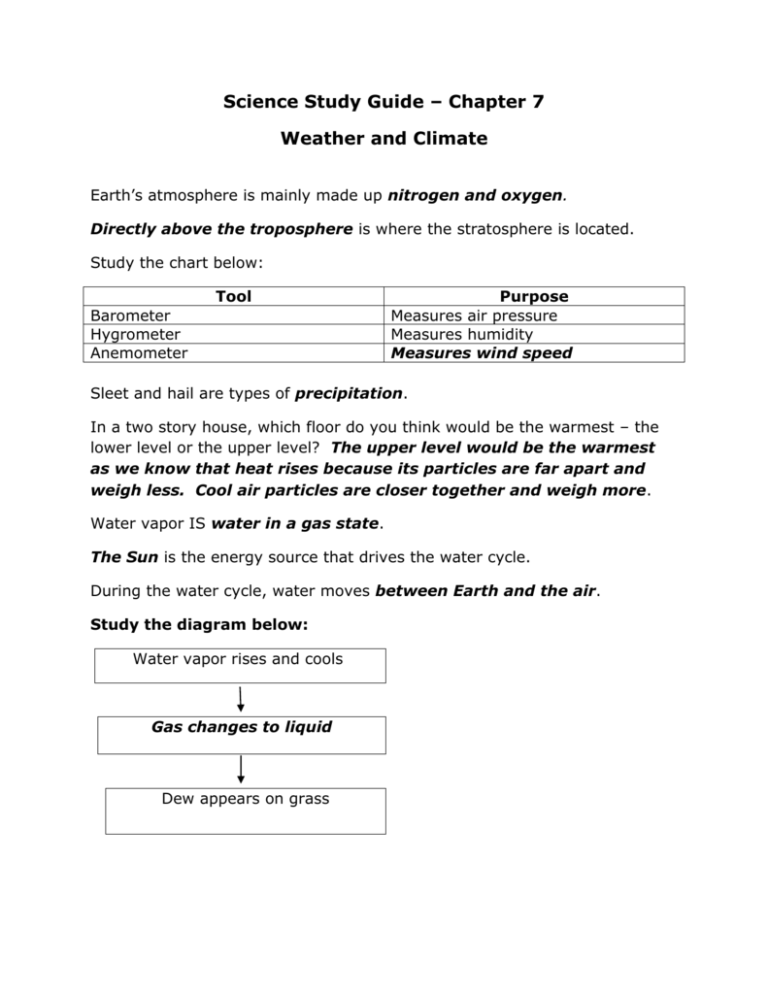
Science Study Guide – Chapter 7 Weather and Climate Earth’s atmosphere is mainly made up nitrogen and oxygen. Directly above the troposphere is where the stratosphere is located. Study the chart below: Tool Barometer Hygrometer Anemometer Purpose Measures air pressure Measures humidity Measures wind speed Sleet and hail are types of precipitation. In a two story house, which floor do you think would be the warmest – the lower level or the upper level? The upper level would be the warmest as we know that heat rises because its particles are far apart and weigh less. Cool air particles are closer together and weigh more. Water vapor IS water in a gas state. The Sun is the energy source that drives the water cycle. During the water cycle, water moves between Earth and the air. Study the diagram below: Water vapor rises and cools Gas changes to liquid Dew appears on grass What factors do you think might cause a cumulus cloud to change into a cumulonimbus cloud? What causes the cumulonimbus cloud to appear dark? Cumulus clouds can change depending on how high they are in the atmosphere, and the size and type of water droplets they contain. As the moisture builds up in the cumulus clouds, they begin to appear darker and thicker and become cumulonimbus clouds. Study the diagram below: Warm Front Brings light, steady rain Warm air slides over cold air Layers of clouds form Thunder occurs when lightning heats air quickly. When a cold air mass pushes under a warm air mass a cold front forms. A hurricane forms over warm ocean waters. The local weather forecast says there will be a cold front moving through your area tomorrow that may become a stationary front. Is it necessary to water your garden this evening? Why? I would not water my plants this evening. Cold fronts often bring stormy weather. If it becomes stationery it could stay for days. Global winds move air between the equator and the poles. Hot and humid is the best way to describe a tropical climate. A plain would NOT have a current. Study the chart below: The Mountain Effect – would be a good title for this chart. Cloud moves up mountain Precipitation falls Air mass passes over mountain and air is dry Each side of mountain has a different climate In terms of latitude, where on the globe would you expect to find tropical rain forests? Rain forests would be located near the equator because areas near the equator are warm and rainy.
